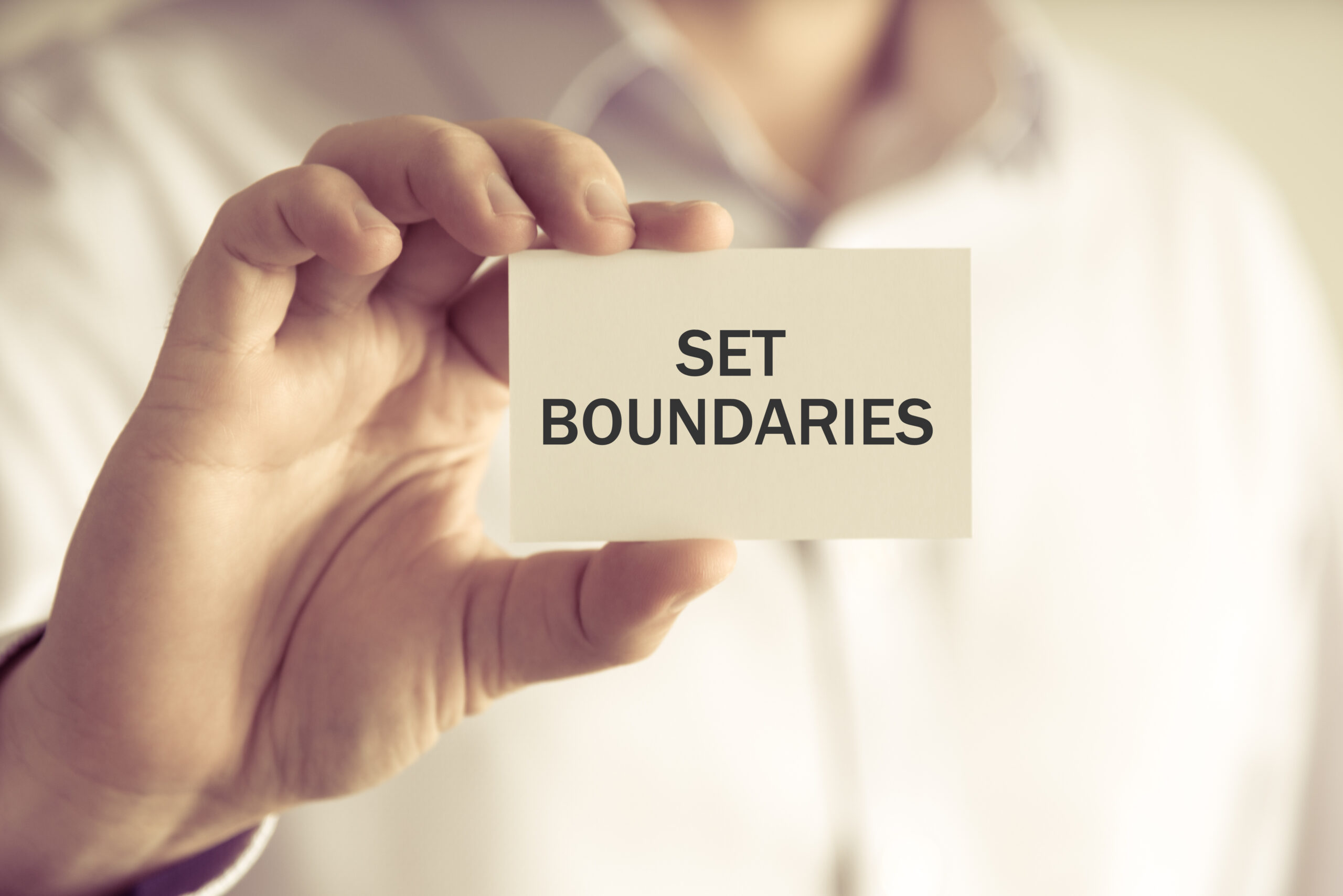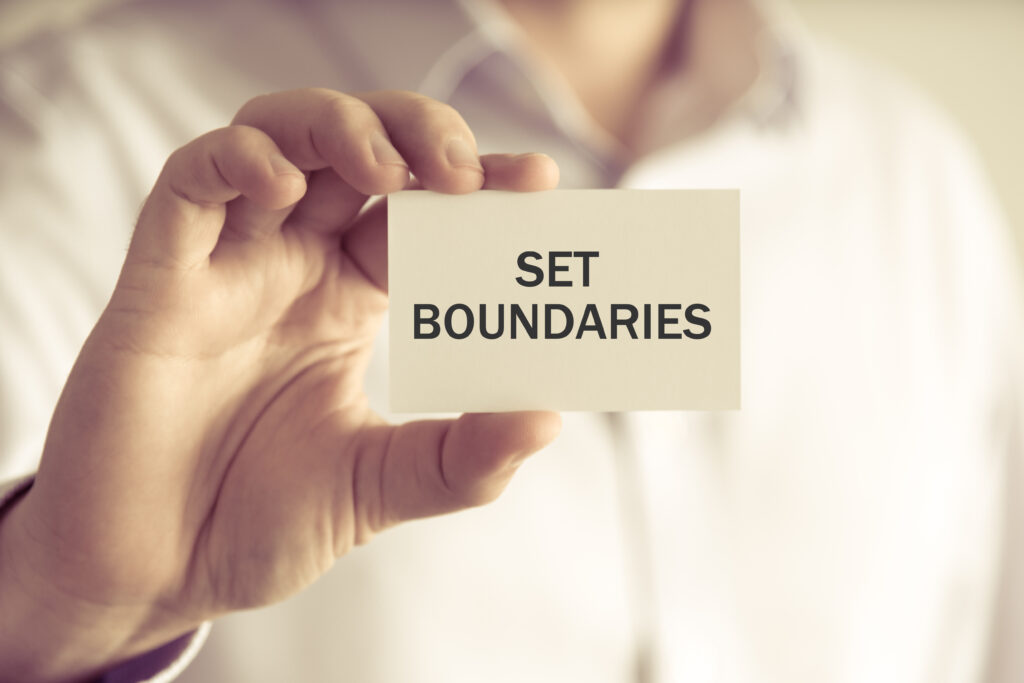Setting good boundaries for yourself is essential in every part of your life, from work, to relationships, and personal struggles. Unfortunately, it is quite difficult at times to stick to those boundaries, and even more so to set reasonable ones. For instance, you can say you’ll only order fast food once a month, but that isn’t always the most reasonable thing to ask yourself to do.
When you’re trying to overcome an opioid addiction, these boundaries are essential for your progress. It’s also key that you know how to set boundaries and know how to handle it if you step over them. Why? Setting good boundaries can help you avoid certain triggers and people that might influence you to use drugs once again.
That’s the topic for today’s blog, from us at Direct2Recovery.
Find Your Limits
Everyone has limits, but it’s okay if you don’t know them all off the top of your head. That’s why you need to do some self reflection to find your limits and name certain triggers. When it comes to addiction, think about why you started using and what makes you want to use, including physical, emotional, and mental triggers. It can be anything from a certain person, situation, or past experience.
The next step is to consider what you can tolerate, what you can’t, and to accept all of it. Knowing is half of the battle and accepting that something, someplace, or someone is bad for you is essential.
Once you’re able to accept that you need to limit your exposure to certain things, you can start thinking of ways to set your boundaries. For example, if seeing fast food ads makes you want to buy fast food, it may be a good idea to block those ads on your social media.
Addiction can make it a little harder, because certain triggers aren’t caused by physical limits. For emotional and mental responses, counseling is often your best bet. Counselors will be able to identify what causes these responses and how to properly cope and avoid them in the future. This leads to our next tip.
Be Direct With Yourself and Others
You need to be direct with yourself to understand what you need. That means being open and honest with those who are helping you, especially professionals. However, maintaining healthy boundaries doesn’t require a direct and clear-cut dialogue, but it is always helpful when you’re starting new habits.
It’s okay to tell yourself no and to tell others no. It’s okay to be direct with how you are feeling to keep your needed boundary, even if that means saying “I can’t see you right now.”
Being direct doesn’t mean overexplaining. You don’t have to give a reason if you are not comfortable with it. You don’t need to justify yourself if you’re not in the right place to do so. Be direct with yourself and understand that you don’t always owe that person an explanation. Be direct with them and tell them you need space, or that you will tell them later, but right now, you just need your own space.
A true friend will understand, though they may be initially hurt by it. So don’t over explain if you don’t want to, don’t defend yourself — be direct, and stand strong.
However, that does not mean you’ll be able to avoid the full truth forever. Evaluate the situation and make sure that you give your loved ones and those supporting you a proper explanation when you are ready to give it.
Prioritize Yourself
Give yourself permission to put yourself first. Self-care also means recognizing the importance of your feelings and honoring them. While it’s always good to consider others and while you should never act in a way that will hurt anyone, sometimes you do need to put your needs first.
Self care doesn’t always mean making grand gestures for yourself. It can mean taking 15 minutes out of your work day to step away and eat lunch. It can mean getting off social media or setting boundaries so you’re in bed at a certain time each day.
Whatever you need to do to make yourself feel better, however small, you should identify and do it.
Start Small
It’s never a good idea to set a big goal for yourself right off the bat. Break it down into small segments and steps — make SMART goals.
Like any new skill, setting and following your boundaries takes practice. Start with something easy. For addiction, the first boundary you set should not be “get clean.” It should be something like “block X person on my phone” or “schedule a consultation with a recovery program.”
Your boundaries and goals can be as simple as “Show up” and “don’t reply.” They don’t need to be large right away. Start small and build yourself up with each boundary and each accomplishment. That’s how you set yourself up for success.
Accept That You’ll Make Mistakes
Mistakes are okay! No one is perfect and sometimes, making mistakes or stepping over the lines you set for yourself are unavoidable. That is normal. The best course of action is to acknowledge the mistake and learn from it. That can mean moving on, or it can mean reevaluating that boundary all together.
Whatever the case is, the most important thing to remember is that it’s okay to make mistakes. It’s all part of the healing process.
If you do make a mistake, we won’t judge you. We’ll help you get back on the right track. If you’re ready to take your life back from addiction, give us a call. We’ll teach you how to set good boundaries and will be with you every step of the way.





